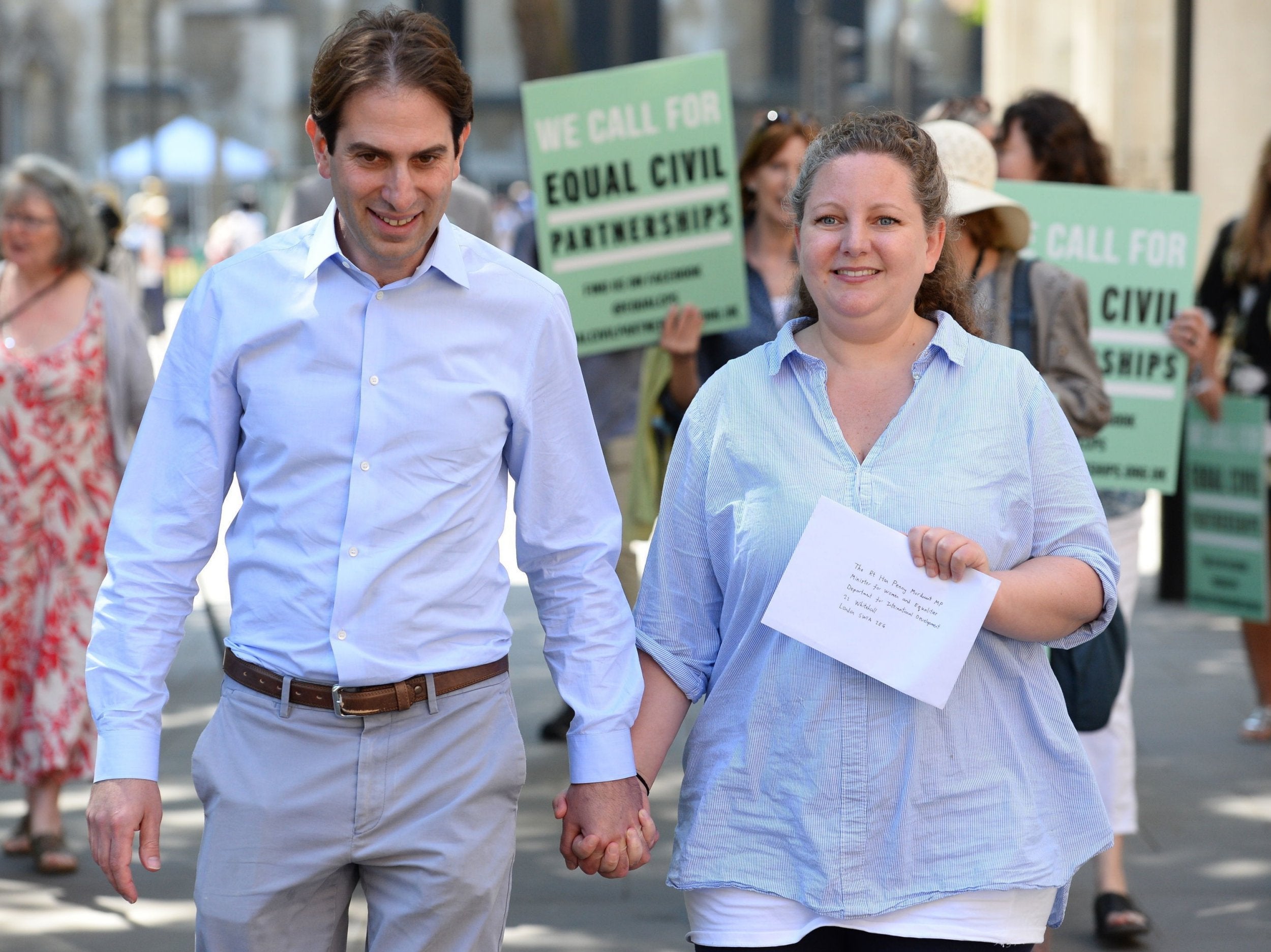Civil partnerships are becoming legal for straight couples in the UK – if we go the way of France, they won't even require romance
While the French Pacs is not the same as marriage in terms of legal and inheritance benefits, it does provide significant tax benefits and provides a legal contract for two people sharing their lives together. In theory, two housemates or cousins can do it


Your support helps us to tell the story
From reproductive rights to climate change to Big Tech, The Independent is on the ground when the story is developing. Whether it's investigating the financials of Elon Musk's pro-Trump PAC or producing our latest documentary, 'The A Word', which shines a light on the American women fighting for reproductive rights, we know how important it is to parse out the facts from the messaging.
At such a critical moment in US history, we need reporters on the ground. Your donation allows us to keep sending journalists to speak to both sides of the story.
The Independent is trusted by Americans across the entire political spectrum. And unlike many other quality news outlets, we choose not to lock Americans out of our reporting and analysis with paywalls. We believe quality journalism should be available to everyone, paid for by those who can afford it.
Your support makes all the difference.Those who cheered the news last week about a drop in divorce rates may be less thrilled with Theresa May’s latest announcement. This morning, May announced that straight couples will now have the right to enter into civil partnerships. This follows the landmark case of Rebecca Steinfeld and Charles Keidan, who went to court demanding the right for a mixed sex civil partnership. The couple had to go all the way to the Supreme Court before winning their case.
Civil partnerships were previously only available to same sex couples and were initially introduced to provide them with the same legal rights as married couples when equal marriage remained illegal. Once same sex marriage became legal in 2014, it meant homosexual couples had the choice between marriage and civil partnerships, while heterosexual couples could only marry.
Rebecca Steinfeld and Charles Keidan’s case lasted for years and was covered widely in the press. It provoked much debate over the status of marriage in our society. Critics of the civil partnership for mixed sex couples worry it will discourage couples from traditional marriage, arguing that that provides the most solid foundation for family life.
But, in truth, when it comes to civil partnerships for all, we are late to the party. Just across the Channel, our French cousins have had the right to civil partnerships since 1999. The pacte civil de solidarité, known as the Pacs, allows same sex and mixed sex couples to enter into civil partnerships equally.
While the Pacs is not the same as marriage in terms of legal and inheritance benefits, it does provide significant tax benefits and provides a legal contract for two people sharing their lives together. Moreover, a couple who enter into a Pacs – known as a pacsé couple – do not even need to be in a romantic relationship.
So, in theory, two housemates or even cousins could get a Pacs and receive tax benefits. The French government does draw the line, however, at Pacs for immediate relatives, meaning siblings or a parent and adult child cannot enter into a Pacs together. Despite these very liberal rules over who can enter into a Pacs, it is, unsurprisingly, most popular with couples.
Those in the UK who fear that the opening up of civil partnerships to more people will be detrimental to marriage may well have a point when you look at the numbers in France. As the popularity of Pacs has increased, the number of marriages has gone down. The latest figures from France’s National Institute of Statistics and Economic Studies show a steady decline in the number of marriages over the past 10 years. In 2016, there were 3,600 less marriages than in 2015. Interestingly, there was a small rise in the number of marriages in 2014, the year after same sex marriage became legal in France.
The popularity of Pacs with heterosexual couples has been a favourite topic of analysis in France for a while. French sociologist Jean-Claude Kaufmann notes that Pacs is more popular among younger couples and that it offers an “in-between” option which bridges single life and full commitment. It is certainly much simpler to get out of a Pacs than a marriage – requiring only an official letter being sent to your local court.
However, those who fear for the state of marriage in the UK shouldn’t panic yet. Marriage still seems to be the most popular choice for couples in France. While 184,000 Pacs were recorded in 2016, there were 225,000 marriages. Moreover, a number of couples see a Pacs as a first step towards marriage. In 2008, 40 per cent of Pacs which were dissolved in France were done so in order that the couple could then marry.
As we take a step towards our Gallic neighbours’ more liberal approach to partnerships, it remains to be seen whether Brits will snub marriage entirely or whether the civil partnership will become just another rite of passage for a couple – somewhere between living together and finally walking down the aisle.
Join our commenting forum
Join thought-provoking conversations, follow other Independent readers and see their replies
Comments